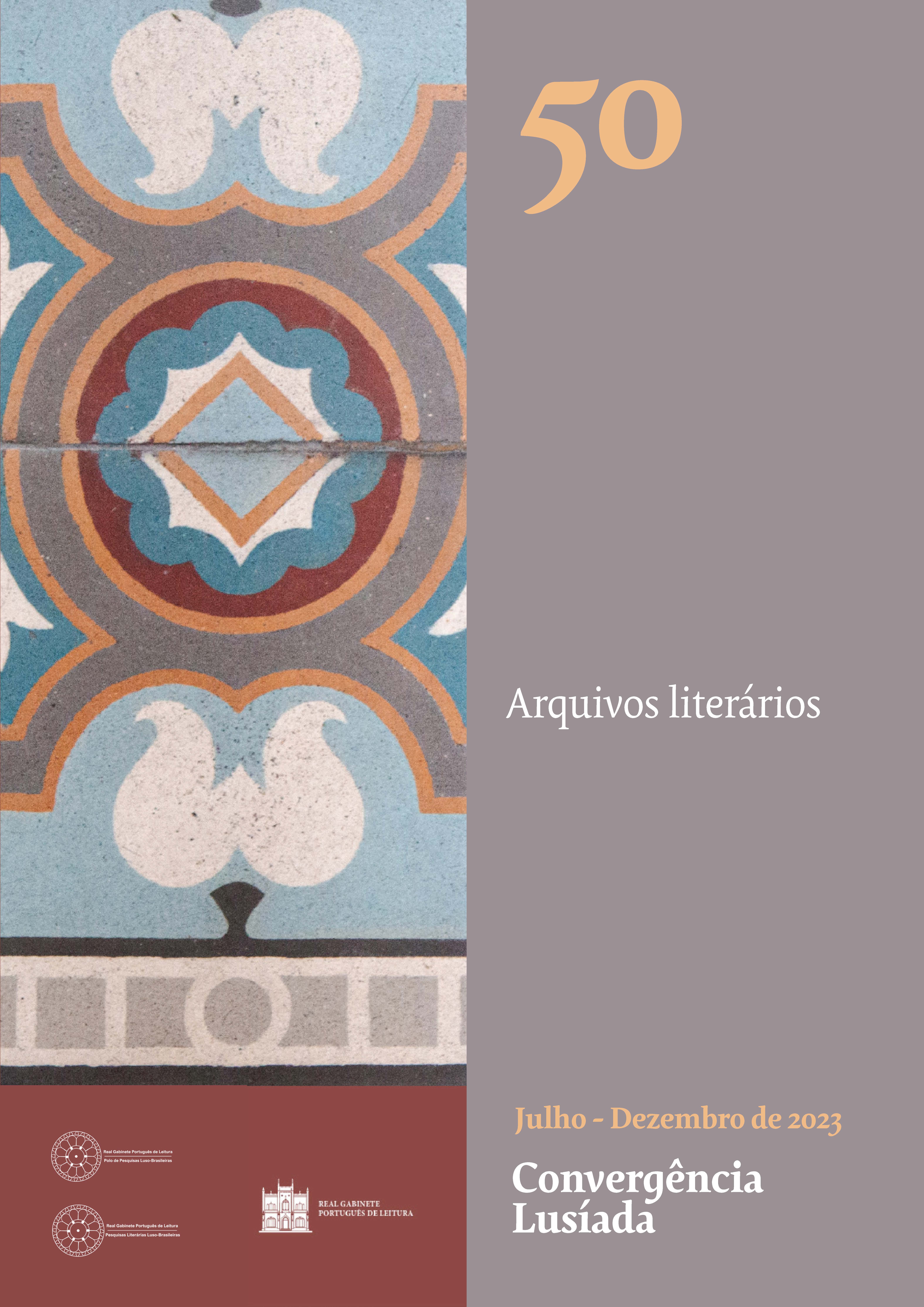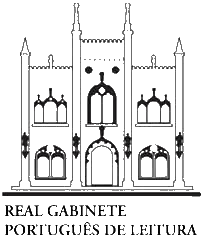Dressmaker Aurélia and seamstress Virgínia: female work in the tale “Batalhas da vida (excerto de um romance inédito)”, by Guiomar Torresão
DOI:
https://doi.org/10.37508/rcl.2023.n50a613Keywords:
Tale, Women’s work, Nineteenth-century female charactersAbstract
This article is part of a master’s research in progress. It aims to discuss some female issues that permeated the lives of women in the 19th century in Portugal. Starting from the conservative and patriarchal female social condition in the country, from the writing and life trajectory model of the Portuguese writer Guiomar Torresão (1844-1898), defender of female emancipation, we analyze the characters Aurélia and Virgínia from the short story “Batalhas da vida (excerpt of an unpublished novel)”, published in the volume As Batalhas da Vida in 1892. The professions of dressmaker and seamstress of these female characters will be guiding points for our quest to understand who were the women “with a needle between their fingers” (Perrot, 2007) and discuss fashion, important in the cultural, social and political movements of the moment, from the perspective of the social history of work and gender. Based on the theoretical assumptions of Irene Vaquinhas (2011), Michelle Perrot (1988 and 2007) and Pierre Bourdieu (2014), we developed a reflection on the history of women, the division between the sexes, patriarchy and work for women in the great century of fashion. The theorist Marshall Berman (2007) will lead us in thinking about modernity and the behavior of bourgeois society in the period.
Downloads
References
ANASTÁCIO, Vanda. (2022). Onde estão as mulheres? Um percurso didático pela história da literatura portuguesa. Convergência Lusíada, Rio de Janeiro, v. 33, n. 48, p. 12-38, nov. 2022. DOI: https://doi.org/10.37508/rcl.2022.n48a513. Disponível em: https://convergencialusiada.com.br/rcl/ article/view/513. Acesso em: 20 de abril de 2023. DOI: https://doi.org/10.37508/rcl.2022.n48a513
BARROS, Thereza Leitão de. Escritoras de Portugal. Lisboa: Tipografia de António O. Artur, 1924, v. II.
BATAILLE, Georges. O erotismo. Tradução de Antonio Carlos Viana. Porto Alegre: L&PM, 1987.
BERMAN, Marshall. Tudo que é sólido desmancha no ar. São Paulo: Editora Companhia das Letras, 2007.
BOURDIEU, Pierre. A dominação masculina. Tradução de Maria Helena Kuhner. 1ª ed. Rio de Janeiro: BestBolso, 2014.
BOURDIEU, Pierre. A distinção: crítica social do julgamento. Tradução Daniela Kern; Guilherme J. F. Teixeira. São Paulo: Edusp; Porto Alegre, RS: Zouk, 2007.
CÂNDIDO, Antonio. De cortiço a cortiço. Novos Estudos – CEBRAP. São Paulo, n. 30, p. 111-129, julho de 1991.
DÉCIO, J. A forma conto e a sua importância. ALFA: Revista de Linguística, São Paulo, v. 22, 2001, p 45-61. Disponível em: https://periodicos.fclar.unesp.br/alfa/article/view/3585. Acesso em: 28 abr. 2023.
FERREIRA, Carla Marina Machado. Costureiras de Lisboa: Artesãs da Moda (1890-1914). 2014. Dissertação (Mestrado em História Moderna e Contemporânea) – Departamento de História, Instituto Universitário de Lisboa, Lisboa, 2014. Disponível em: https://repositorio.iscte-iul.pt/handle/10071/10147. Acesso em: 23 abr. 2023.
LERNER, Gerda. A criação da consciência feminista: a luta de 1.200 anos das mulheres para libertar suas mentes do pensamento patriarcal. Tradução de Luiza Sellera. São Paulo: Editora Cultrix, 2022.
MARX, Karl. O Capital - Livro I – crítica da economia política: O processo de produção do capital. Tradução Rubens Enderle. São Paulo: Boitempo, 2013. Disponível em https://www.gepec.ufscar.br/publicacoes/livros-e-colecoes/marx-e-engels/o-capital-livro-1.pdf/view. Acesso em: 20 de abril de 2023.
MASSAUD, Moisés. A criação literária: prosa 1. 20. ed. São Paulo: Cultrix, 2006.
PERROT, Michelle. Minha história das mulheres. Tradução de Angela M. S. Côrrea. São Paulo: Contexto, 2007.
PERROT, Michelle. Os excluídos da história: operários, mulheres e prisioneiros. Editora Paz e Terra, 1988.
REIS, Carlos. O Realismo e o Naturalismo: ideologia, temática, estratégias. In: REIS, Carlos (dir.). História da Literatura Portuguesa. O Realismo e o Naturalismo, Lisboa, Publicações Alfa, 2001, p. 15-25, v. V.
SAFFIOTI, Heleieth. A mulher na sociedade de classes. São Paulo: Expressão Popular, 2013.
TORRESÃO, Guiomar. A Mulher no século XIX. In: TORRESÃO, Guiomar. Idílio à inglesa (Contos Modernos). Lisboa: Livraria Ferreira, 1886, p. 353- 356.
TORRESÃO, Guiomar. Batalhas da vida (excerto de um romance inédito). In: TORRESÃO, Guiomar. As Batalhas da Vida. Lisboa: Livraria de Antonio Maria Pereira, 1892, p. 91-106.
TORRESÃO, Guiomar. Instrução Feminina. In TORRESÃO, Guiomar. As batalhas da vida. Lisboa: Livraria de Antonio Maria Pereira, 1892, p. 177- 184.
TORRESÃO, Guiomar. Na Primavera. In: TORRESÃO, Guiomar. Meteoros. Lisboa: Typ. de Christovão A. Rodrigues, 1875, p. 163-169.
TORRESÃO, Guiomar. Narciza Amalia. In: TORRESÃO, Guiomar. Meteoros. Lisboa: Typ. de Christovão A. Rodrigues, 1875, p. 101-106.
VAQUINHAS, Irene. “Senhoras e Mulheres” na Sociedade Portuguesa do Século XIX. Lisboa: Edições Colibri, 2011.
WOLF, Naomi. O mito da beleza: como as imagens de beleza são usadas contra as mulheres. Rio de Janeiro: Rosa dos Tempos, 2021.
Downloads
Published
How to Cite
Issue
Section
License
Authors who publish in Convergência Lusíada agree with the following terms:
- Authors retain copyright and grant the journal right of first publication with the work simultaneously licensed under a Creative Commons Attribution-NonCommercial 4.0 International License (CC-BY-NC 4.0) that allows others to share the work with an acknowledgment of the work's authorship and initial publication in this journal.
- Authors may enter into separate, additional contractual arrangements for the non-exclusive distribution of the journal’s published version of the work (e.g., post it to an institutional repository or publish it in a book), with an acknowledgment of its initial publication in this journal.
- Authors are permitted and encouraged to post their work online (e.g., in institutional repositories or on their website) prior to and during the submission process, as it can lead to productive exchanges, as well as earlier and greater citation of published work.

Revista Convergência Lusíada is licensed under a Creative Commons - Atribuição-NãoComercial 4.0 Internacional.









